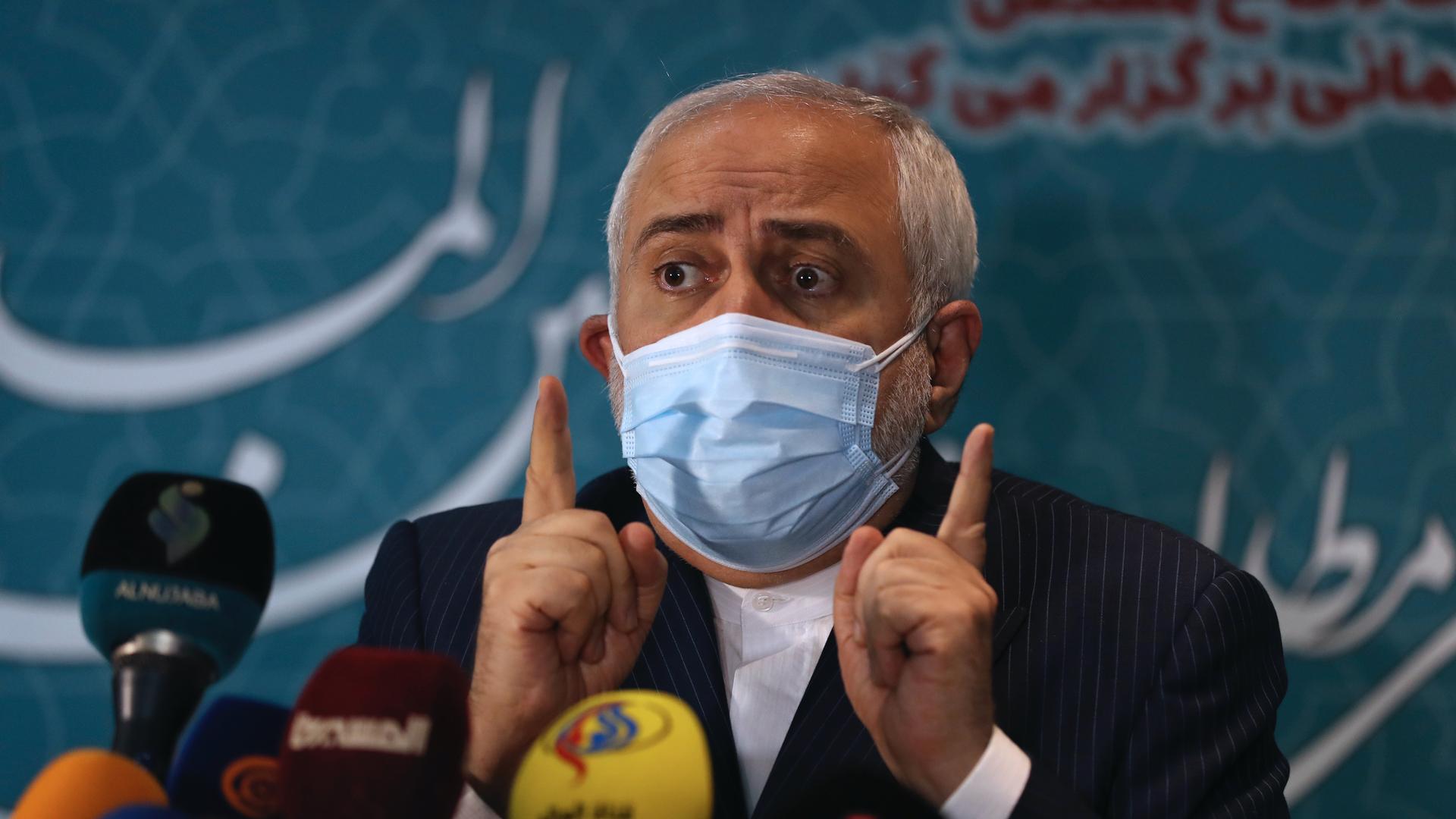Iran’s foreign minister talked on Clubhouse. Was it an act of rare access or political opportunism?
It’s not every day that you get high-level officials in Iran to hop on a social media app to answer questions — the state tightly controls social media there.
But on Wednesday, Iran’s foreign minister, Javad Zarif, spent hours on an app called Clubhouse, which lets users join audio-based chatrooms.
Zarif discussed everything from Iran’s recent partnership with China to his bedtime routine. Iranian state media published parts of his conversation.
Roughly 8,000 people joined the discussion, the maximum number that Clubhouse allows.
Some observers say that Clubhouse has brought about a new forum for Iranians near and far to discuss politics but others worry that the government could exploit the platform for its own purposes.
Related: Iranian American composer Sahba Aminikia on the healing power of music
“You have this relatively new application, Clubhouse, and all of the sudden, people have the opportunity to be engaged in questions and answers with [Zarif], and if you were following any Persian social media, suddenly, this was blowing up.”
“You have this relatively new application, Clubhouse, and all of the sudden, people have the opportunity to be engaged in questions and answers with [Zarif], and if you were following any Persian social media, suddenly, this was blowing up,” said Mahsa Alimardani, one of the participants.
Alimardani, who studies Iran’s political communications at Oxford University, said these types of encounters with high-level Iranian officials are rare.
“You had people from all sorts of political stripes, from in the diaspora, from inside of Iran listening, which led to this sense of novelty,” she added.
It’s novel because in Iran, the state filters the internet and blocks most social media apps. But here was the foreign minister showing a somewhat unvarnished side of himself. At one point, Zarif complained that it was way past his bedtime but he’s willing to stay a little longer.
But Zarif had his talking points, too. He said he wanted to put an end to rumors that he is planning to run for president in the upcoming election in June.
He also wanted to respond to allegations made in a TV show that during the nuclear talks with the US, his team had been infiltrated by spies.
“These are lies,” he said.
Related: White House breaks with Trump’s ‘maximum pressure’ policy
The majority of the questions from Clubhouse participants were about a controversial new deal between Iran and China.
In a pact the two countries signed last week, China agreed to invest $400 billion in Iran for over 25 years in exchange for oil. Some Iranians are outraged that the government kept details of the deal secret.
Semblance of free speech
Clubhouse only allows the chatroom’s moderators to choose who can ask a question. So, not everyone could ask a question.
Afterward, in a separate session that went on until the early hours of the morning in Tehran, the moderator admitted that the Foreign Ministry had asked him to follow its protocols though he didn’t say what those were.
Still, Amir Rashidi, director of digital rights and security at Miaan Group, a New York-based organization, said Clubhouse has opened up a new space for political debate among Iranians.
“Clubhouse is actually changing the way that we talk to each other,” he said. “It’s changing the way that we are connecting to each other.”
Rashidi, who has studied Iran’s internet for the past decade, said he has been keeping an eye on who joins Clubhouse in Iran. He said in the past few months, he has noticed a rise in the number of politicians and public figures who are embracing the platform.
Even though the invite-only app runs soley on Apple devices, Rashidi said Iranians have found workarounds — like they always do.
“Iranians are usually tech savvy. If you ask my mom, ‘What’s the best circumvention tool?’ She would definitely have at least five options for you.”
“Iranians are usually tech savvy,” he explained. “If you ask my mom, ‘What’s the best circumvention tool?’ She would definitely have at least five options for you.”
Circumvention tools — like virtual private networks — help users bypass internet censorship.
Both Rashidi and Alimardani are cautious about making too much of this Clubhouse phenomenon or suggesting that it could bring democracy to Iran.
“I kept on being reminded of the same media fascination there was with Trump,” Alimardani said. “That actually fed into his power. Which is, you know … you can’t stop watching, it’s so entertaining and the more you watch, the more you feed into this system and buy into their spectacle.”
Related: Biden administration to return to Iran talks
Sina Azodi, a fellow with the Atlantic Council and scholar at George Washington University, said it’s no coincidence that this event comes in the run-up to the Iranian election.
“There is a propaganda war in the West, East, and Iranian[s] are trying to use these media platforms to send their own message,” he said.
Azodi added that he expects more of these seemingly impromptu appearances by politicians in Iran in the coming months.
That makes Rashidi concerned. He said as more Iranians join Clubhouse, he wishes the platform would work with local experts to make sure that the Iranian state doesn’t use the app to crack down on dissent.
“They [local experts] can have a better understanding and better model to basically form their tools in a way that protects human rights, protects freedom of speech, people’s privacy and security,” he said.
But that might not even be necessary — Clubhouse could very well end up on the long list of social media apps that are blocked in Iran.
